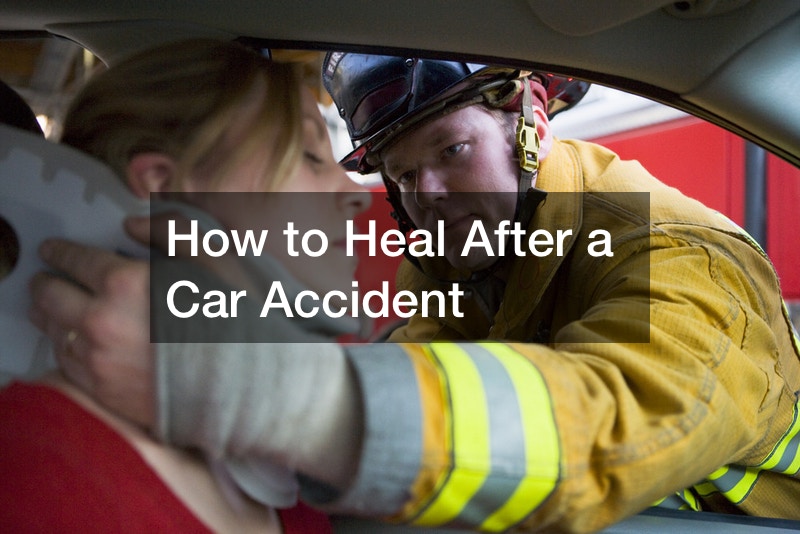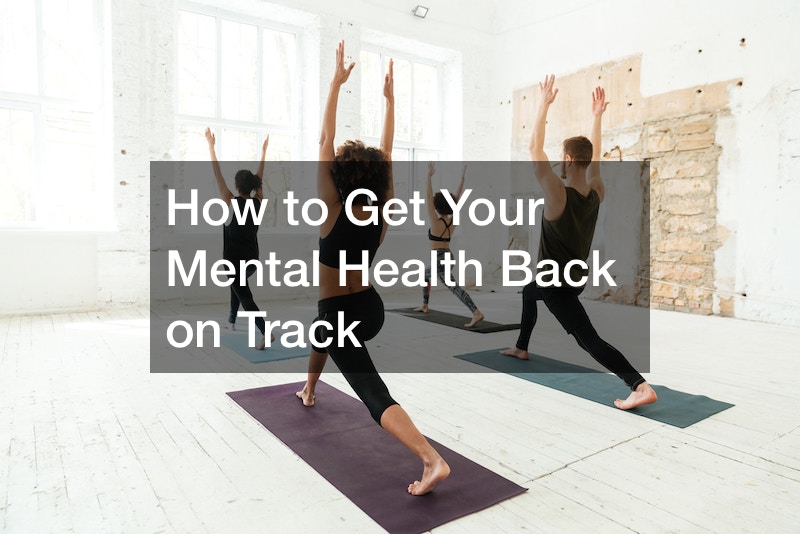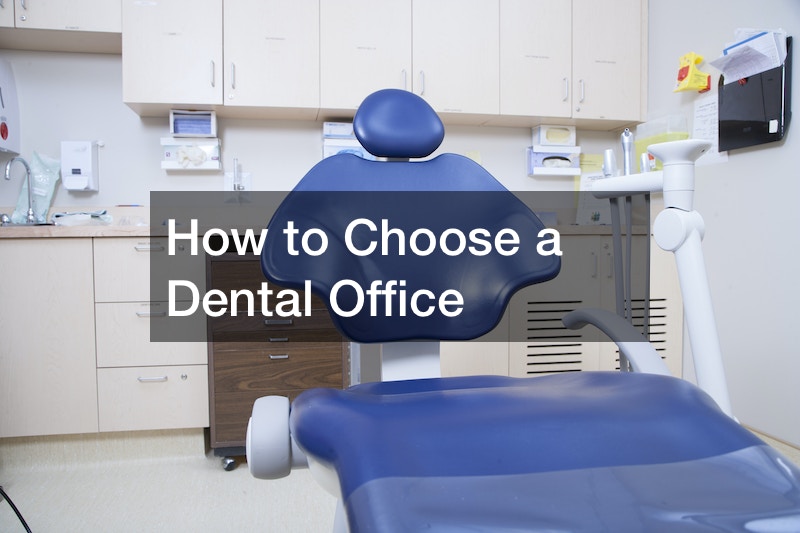
A car accident is a harrowing event for anyone, both mentally and physically. If an accident has caused you any discomfort, injury, or pain, it can make getting back to regular life challenging.
Many people try and ‘shake off’ accidents to get back to their usual routines without getting proper care. But, it’s essential to know how to heal when it comes to accidents.
It’s vital that you consult a physician even if you think your injuries are minor. Why? Because a physician will conduct a proper exam to see if there are any lingering issues.
Also, there are other ways to speed up your recovery, including eating healthily, physical therapy, and working out. That said, let’s look at how to heal after a car accident, including what to expect immediately after the accident, injuries to check for, and recovery tips.
What to Expect Immediately After an Accident
You might not experience severe symptoms following the accident because your adrenaline could be numbing the pain. But if you have noticed you have a fracture, head, or spinal injury, it’s crucial that you know how to heal after a car accident by seeking professional help.
But if you don’t feel anything or have minor aches, book an appointment with specialists such as orthopedic specialists and podiatrists to see if you have injuries you’re unaware of.
Which Aspects of Your Life Does a Car Accident Affect?

It’s also worth noting that the impact of car accidents is felt in four key areas, namely emotional/mental, physical, financial, and logistical.
Emotional
It’s normal to have an emotional response following a car accident because of the trauma involved. You might suffer emotional swings weeks or even months after the accident. Your emotions will surface in the form of fear, flashbacks, PTSD, etc.
Financial
Financial implications of an accident are evident because there are costs associated with repairing your vehicle and covering any medical bills.
This is why you must have auto insurance to cover collision repair for your vehicle. Also, it’s important that you have personal insurance cover to settle the medical bills.
If the accident resulted from the laxity of another party, you could hire a car accident attorney or personal injury attorneys to help you get compensation related to emotional distress and physical and vehicle damage.
Not only that, if the accident left you disabled, you could hire a disability attorney to help you sue the person or persons responsible for the accident.
Logistical
Logistical issues after an accident include a temporary vehicle as a truck repair expert tends to your vehicle. Depending on how long the auto collision repair takes, your insurance provider can provide alternative means of transportation.
Physical
Physical complications are visible; they include an injury or laceration that happens as a result of an accident. The first responders or paramedics will give you treatment on the scene.
If the injury is severe, the first responders will take you to the hospital as they attend to you using the available tools such as a breathing air compressor to ensure you’re conscious.
Symptoms You Should Look Out for After an Accident

For you to know how to heal after a car accident, there are a couple of signs you should look out for, including:
Abdominal Pain
Abdominal or stomach pain following an accident can signify internal bleeding or soft tissue damage. You should get abdominal pain checked and treated immediately.
Back Pain
Back pains present themselves hours or days after you’ve had an accident. Back pains can be a symptom of herniated discs, soft tissue damage, spinal injuries, whiplash, etc.
Back pain can have lasting effects on your daily routines and mobility. Therefore, knowing how to heal after a car accident is necessary if you encounter back pains.
Fatigue
Persistent exhaustion following an accident may result from depression or traumatic brain injury, so it demands immediate medical attention.
Headache and Nausea
While having a headache is common following an accident, if you also feel nauseated or develop flu-like symptoms, you should get that checked immediately.
It’s vital that you know how to heal after a car accident following such symptoms because it could mean you have a concussion or some kind of brain injury.
Memory Loss
Car accidents cause your body to experience emotional and psychological effects. So if you have memory lapses, it might be a sign of brain injury.
Neck or Shoulder Pain
Neck pain is a symptom of whiplash, which occurs due to rear-end collisions. If you want to know how to heal after a car accident, this is one of the symptoms to look out for. Why? Because it can lead to herniated discs, spinal injuries, sprains, etc.
Tingling and Numbness
If you’re feeling numb or have a tingling feeling throughout your body, it could be a sign of damage to your nervous system or spinal injury. Also, you might have a herniated disc depending on the area where you’re experiencing numbness and tingling.
Tips to Help You Heal After an Accident

Seek Medical Help Immediately After the Accident
Not all car accident injuries can be perceived immediately. For instance, symptoms of concussion, spine damage, and whiplash may take days or even weeks to present themselves.
If left untreated, accident injuries such as herniated discs and whiplash could lead to chronic pain in the future. Note that untreated concussions or internal bleeding can cause permanent brain damage or even death.
Use Ice and Heat
Even if you didn’t sustain serious injuries, it’s still important to know how to heal after a car accident. Why? Because your muscles will be sore due to the impact, strain, and tension. You can place a cold compress on the sore parts to calm pain and reduce swelling.
Its recommended that you do this in the first 72 hours following the accident, placing a cold compress on the affected area for about 15 minutes and repeating if need be.
Reducing inflammation and swelling is vital to speeding up your recovery. Not that you shouldn’t use heat on acute injuries; use it in the latter days to help relax your muscles.
Find The Right Auto Injury Doctor
Your PCP (primary care physician) isn’t the best health practitioner to see following a car accident. PCPs are only trained to deal with some internal injuries; they’re not trained to diagnose and treat concussions, fractures, soft tissue injuries, and whiplash.
So if you want to know how to heal after a car accident, you need a professional like a PT (physical therapist). PTs can be very handy for your car accident recovery. PTs use various healing techniques such as electrical stimulation, massage, ultrasound, etc.
Stick to The Prescribed Treatment Plan
The treatment process following a car accident can be long and slow. So listen to your physician by following the treatment plan prescribed to you. This includes:
- Attending therapy sessions
- Doing the recommended exercises while at home
- Taking all meds as prescribed
- Take time off work and stay off some routines to allow your body to heal
- Scheduling and attending follow-up appointments with your doctor
Note that if you feel like some aspects of your prescribed treatment plan aren’t effective, talk to your physician. Together, you can come up with alternative treatment options that will be more effective for your recovery.
Get Adequate Rest
Resting and sleeping are crucial if you want to know how to heal after a car accident. When you take a nap, your body increases blood flow to your muscles and soft tissues; this allows for growth and muscle repair.
Not only that, the level of stress hormones in your body drops when you take a nap which can help reduce pain and internal inflammation.
So after an accident, you need to slow down and rest so that your body can heal. Understand your limits so that you do not push yourself too hard too soon. If you try to power through a serious car accident injury, you risk harming yourself further.
Manage Your Pain
In the course of the first several hours, days, weeks, or even months following your accident, you might be in a lot of pain. Pain can make you feel angry, depressed, and less motivated to take part in steps that can help speed up your recovery.
So it’s crucial you learn how to heal after a car accident by managing your pain. Pain management can include taking several breaks during the day, OTC pain meds, and cold compresses. You can also have a massage to help with sore muscles and ligaments.
If you’re experiencing severe pain hindering your ability to partake in daily routines or even sleep, consult your physician. They can write you a prescription for more potent pain relievers or offer alternative pain treatment options.
Exercises
It’s vital to exercise and stretch your body to regain balance, endurance, flexibility, and motion. The constant movement of body parts keeps your muscles and joints from stiffening and weakening. Exercising also helps you reduce inflammation and pain.
Follow your caregiver’s recommendations on the level and type of exercises you should do. Even if you feel like your body can take a beating, pushing yourself too hard too soon can prolong your recovery or worsen your injuries.
Have A Healthy Diet
Having a healthy diet can help fast-track your recovery. As your body heals, it needs whole and fresh foods to nourish it with nutrients, protein, and vitamins to help repair the damage.
Try and have regular healthy meals even when you’re in a lot of pain or frustrated by the healing process because your body needs the energy and nutrients.
Hydrate
After a traumatic injury such as a car accident, your body can get dehydrated faster, so you should up your water intake and ensure you have a cup of water nearby at all times.
Ensure you take at least seven cups of water per day. Fluids help repair muscles and soft tissues in your body. Hydrating also helps boost your immune system.
Have A Good Support System
If you want to know how to heal after a car accident, it’s vital that you surround yourself with the right people. What do we mean by this? Have a sound support system, and people who can help lift your moods and make sure you follow your treatment plan.
Depending on your injuries, a sound support system can also help you in your routines, such as cleaning up and heading to doctor’s appointments. They also help you deal with anxiety, depression, fear, and PTSD down the road.
Be Patient
Learn to be patient because the treatment and recovery process can be long depending on the injuries you sustained. It’s easy to feel like you’re not making any progress, so keep your chin up, follow the recommended treatment plan and take care of your body.
Note healing isn’t the same for different people because of various factors. However, if you follow all the steps illustrated above, you should be getting back to your routines soon.
Learn Defensive Driving
Driving or riding in vehicles can be hard following an accident. However, you can enroll in DMV driver improvement courses and learn defensive driving.
Defensive driving teaches you how to drive carefully and avoid distractions while you’re driving, such as eating, taking phone calls, or texting.
It also emphasizes the importance of not driving when you’re feeling tired or after a night out with a friend when you have taken alcohol.
Final Thought
To sum it all up, recuperating following a car accident isn’t easy, and it takes time. As a result, you just need to be patient and allow your body to make a full recovery. Afterward, you can acclimatize yourself with the art of driving and get on the road once again.





